On Monday, Vermont Senator and Democratic presidential somewhat-hopeful Bernie Sanders returned to the Senate just to vote in favor of what he called “no-brainer” gun control measures. Naturally, the Republican-dominated Senate knocked these gun control votes down, but hearing about Sanders back in Congress was refreshing. After all, Sanders has a long history of doing some pretty amazing things in a Congress severely lacking for amazing things at the moment. Although Hillary Clinton is the presumptive Democratic nominee and her rumored vice presidential shortlist excludes her opponent, Sanders is better off in Congress than as VP.
According to CNN, Sanders’ aides told the outlet he wasn’t expecting to be considered, and Clinton’s aides confirmed he wasn’t in the running. But there’s quite a few reasons why Sanders is better in Congress than on the Clinton ticket, anyway.
His journey on the campaign trail over this past year has been nothing short of straight fire, raising awareness about critical issues from campaign finance to the frankly terrifying current distribution of wealth in modern America, and mobilizing legions of disillusioned progressives. But Sanders has a long history of uniting, rallying, and ultimately pushing reforms, however modest, and could play a huge role in a Congress that has clearly descended into chaos. His place is Congress, where, after a year of funding a powerful campaign solely through small, individual contributions, he would put senators — Republican and Democrat — owned by special interest groups to shame.
Contents
1. He has a long, long history of getting shit done in Congress.
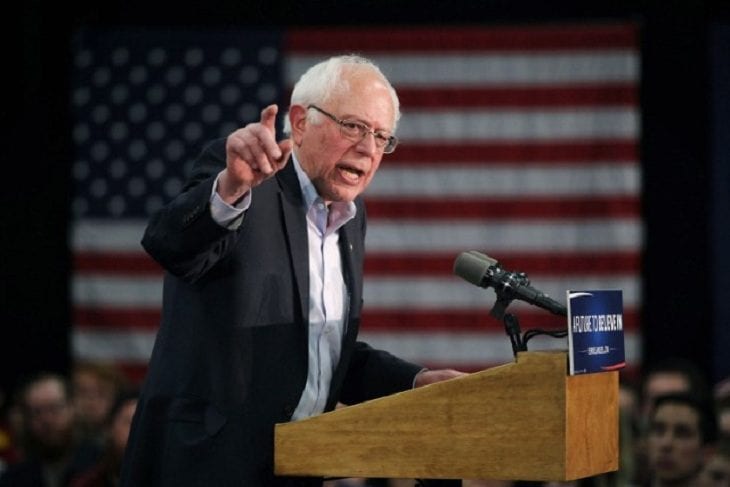
With a Republican Senate more stagnant now than ever before, from its bratty refusal to confirm President Obama’s SCOTUS nominee to its refusal to pass even the most moderate, common sense gun control reforms, Sanders’ progressive leadership could really come in handy right now. Aside from the fact that Sanders literally co-founded the Congressional Progressive Caucus (CPC) in 1991, he’s repeatedly proved that contrary to what Clinton might have you believe, you don’t have to be a moderate to “get things done.”
As Alternet points out, Sanders has on many occasions managed to rally Republicans behind him in bipartisan coalitions working toward progressive goals, and has led Congress toward passing amendments on everything from corporate crime reform, college affordability, protecting pensions, expanding healthcare coverage, fighting child labor, making sure the poor are able to stay warm, helping veterans and their children, and addressing autism in military healthcare.
The list goes on and, frankly, for quite a while, but you get the point. He’s gotten a lot of great things done in a Congress that, today, struggles to work across party lines. If anyone can remedy this, I’m inclined to think it’s him.
2. Sanders is a leader/revolutionary, not a follower.
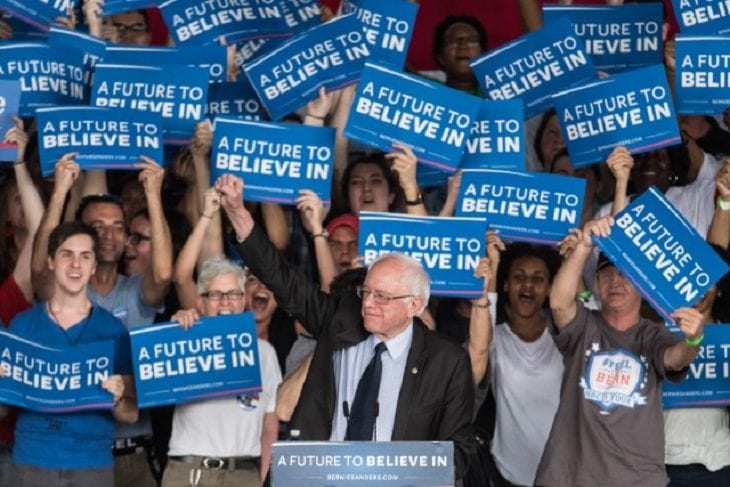
Sanders’ whole brand and appeal to his army of progressive supporters is that he isn’t part of the political “establishment,” he’s the leader of their revolution. Through establishing this rep for himself, and by all means, following through with it by consistently bringing attention to previously accepted flaws within the Democratic party, he’s inspired millions of supporters to no longer accept a status quo that condones corruption and excludes countless from the political dialogue.
While Clinton’s platform might be progressive in many ways, there is no shortage of valid reasons why she continues to be perceived as the leader of Democratic establishment politics. Joining Clinton’s administration as her vice president would largely strip Sanders of all that hard-won credibility he’s built up among progressives. For all his very valid criticisms of Clinton, her track record, and where she gets her money, he’d ultimately appear hypocritical, and reflect typical establishment politicians’ tendency to compromise their values for political power.
Meanwhile, his record in Congress shows a strong ability to lead others and advance reform, and I have little doubt he would be better situated to advance his political revolution there than while dodging accusations of hypocrisy and inauthenticity next to Clinton.
3. He’d demoralize his legions of progressive supporters.
Speaking of that army of progressive supporters, aside from probably getting pretty upset at Sanders for joining the woman who many of his supporters still perceive as the enemy, they’d probably — and rightfully — feel pretty demoralized watching their leader surrender to the establishment. To some, it would appear as if Sanders were conceding that the establishment can’t be defeated, so you might as well join it, and the political revolution inspired by him would dramatically lose momentum.
Last week, Sanders delivered a passionate plea to his supporters via webcast to run for office and essentially, be the change they wanted to see in the world. (He somehow even managed to make this not sound like a trite, dorky cliche.) In joining what he’s long identified as establishment politics, he’d hardly be setting a good example for the 7,000 supporters of his whom he claims have already begun launching grassroots campaigns inspired by him.
4. His criticisms of Clinton need to keep coming and never stop.
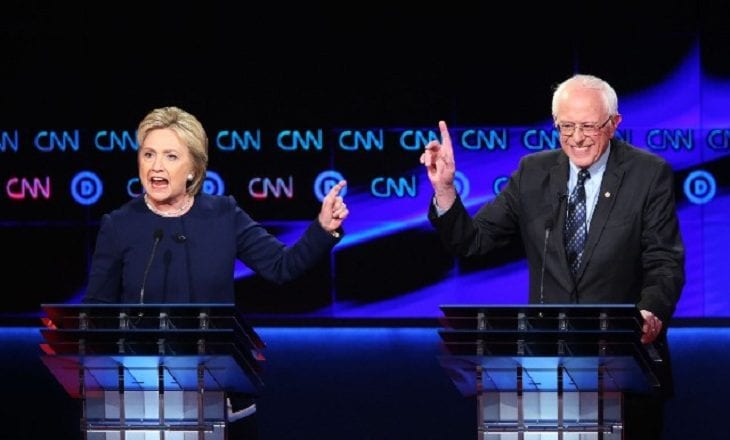
In the early days of his campaign, Sanders shied away from saying too much about his rival for the Democratic nomination, but by the start of 2016, the gloves were off and Sanders didn’t hold back. Sanders has criticized everything from her Iraq War vote and devastatingly hawkish, interventionist foreign policy as secretary of state to her support for crime reform bills contributing substantially to mass incarceration. He’s criticized her support for 1990’s “welfare reform” that disproportionately hurt single mothers and women of color, and which, according to Jacobin magazine, has since doubled the number of Americans living on $2 a day. He’s criticized her ties to the fossil fuel industry, how her current healthcare plan would still leave a good amount of Americans uninsured, and questioned her on money she’s received from big banks.
Sanders contributed to bringing attention to all of these note-worthy flaws of Clinton’s, previously unknown or simply overlooked because of her inevitability. Ultimately, by calling out her less progressive stances, he’s pushed Clinton to move left on things like global trade agreements and Keystone XL. If he doesn’t work under her administration, Sanders will have far more liberty to continue to offer these same biting, necessary criticisms of Clinton and her policies, and since I expect Sanders to remain in Congress, frankly, I look forward to every minute of it.
5. Sanders is best as an Independent senator.
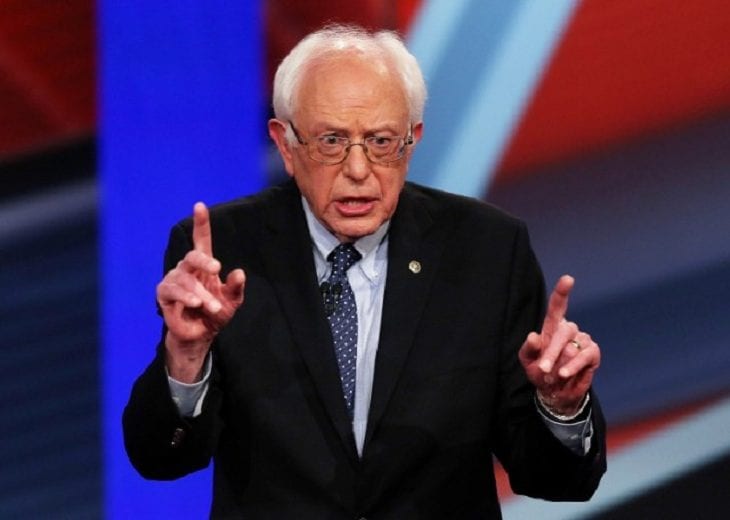
Poll after poll shows Americans are pretty done with the two-party system and its tendency to make every issue divisive as all hell and exclude a lot of viewpoints. In fact, as of 2015, a new record of 43 percent of American voters identify as Independent, and what with all the dissent within both the Democratic and Republican parties over the course of this past year stirred up by Donald Trump and Sanders alike, I can only imagine this number has grown since then.
Between Democrats and Republicans (aka a party that has consistently refused to do anything to address climate change or gun violence and consistently infringes on women’s right to choose), Democrats are obviously more progressive, but one of Sanders’ crown achievements is pointing out that they, too, are flawed — primarily in their economic policies that sometimes simply don’t push for enough, throw poorer Americans under the bus, outright, or excuse corrupt money in politics and campaign finance.
Sanders might have shrewdly run for president with the Democratic party for more media coverage and because drawing away progressives from the Democratic party could risk a Republican presidency, but in the Senate, he’s an Independent with the liberty to call out bullshit from either party and a hypothetical, Democratic Clinton administration. Again, not going to lie, I’m pretty excited to see that.
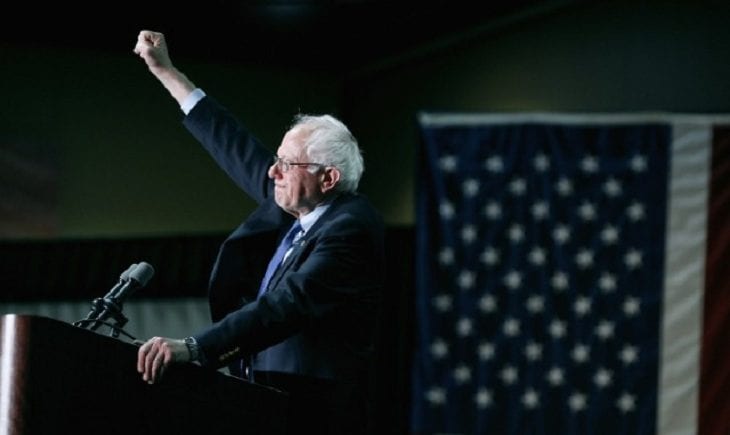
Still, at the end of the day, if Sanders does go on to take a post in Clinton’s administration (he’d make a fabulous secretary of labor, don’t you think?), that will hardly change the way I look at him. Robert Reich is one of the most notable, iconic progressives out there, and he was secretary of labor under President Bill Clinton, whose platform and decision to end Glass-Steagall, a law regulating banks, Reich has been critical of.
You don’t have to agree with the president on everything to work with and advise them. If Sanders worked on Clinton’s administration, I don’t doubt he would do his utmost to soften her foreign policy and encourage her to embrace more progressive economic policies. Even if Sanders does work under Clinton’s administration, though, he’s not even being considered as a potential VP. Clinton’s shortlist currently includes Massachusetts Senator Elizabeth Warren (surprise, surprise), Virginia Senator Tim Kaine (whom the AP notes is “a well-liked lawmaker from an important general election battleground state”), and Housing and Urban Development Secretary Julian Castro of Texas.
Clinton has never been shy about praising Warren, who recently endorsed her, and considering how high Warren’s star has risen in the past year among progressives, the Massachusetts senator is an obvious frontrunner. In many ways, Warren is arguably a female Sanders (especially when it comes to economic policy), so with her on Clinton’s ticket and Sanders fighting the good fight in Congress, the future for progressives looks pretty bright.
Original by Kylie Cheung
